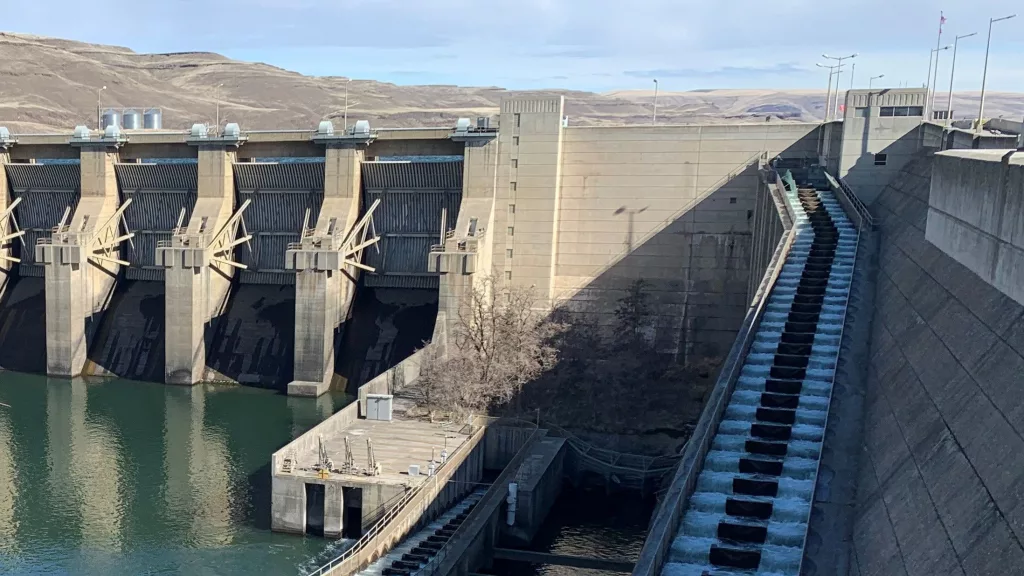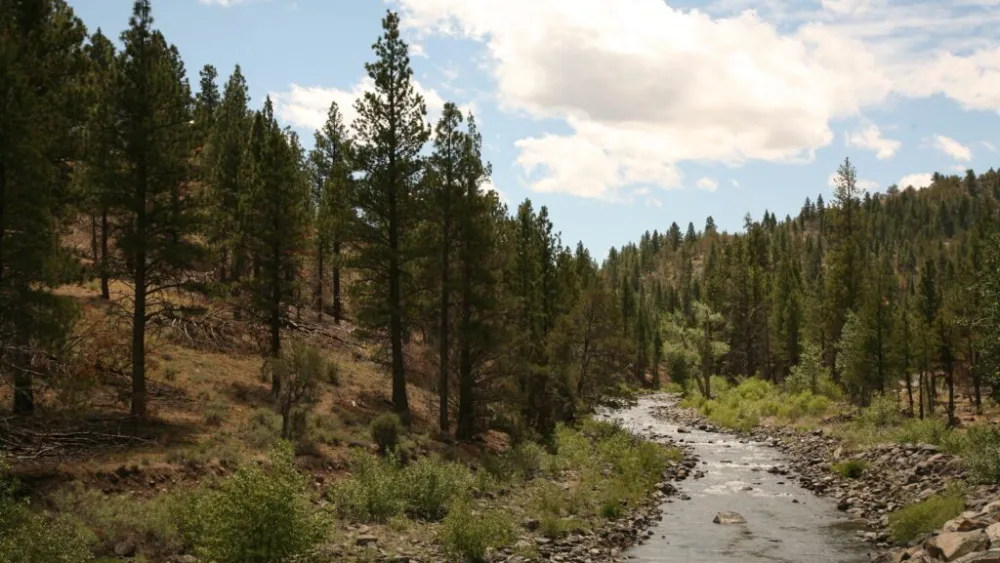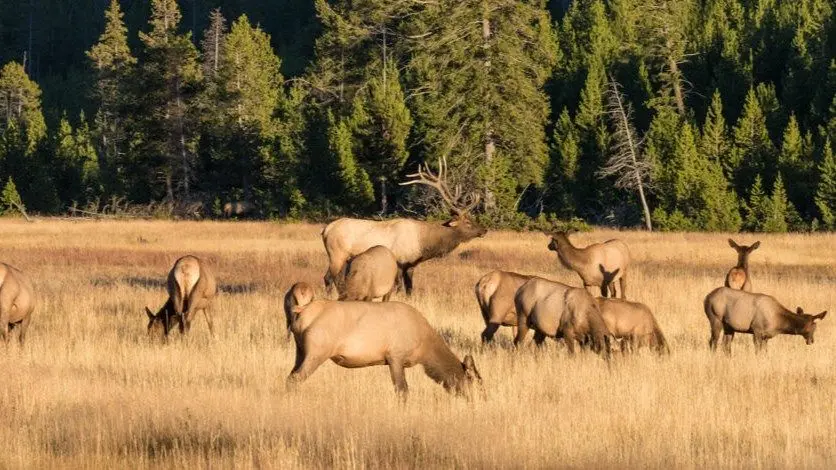PORTLAND, OR – A long-running court battle over how to balance protections for endangered fish with hydropower dams in the Columbia River Basin has resumed after a two-year pause.
Conservationists, anglers and clean energy groups, along with the state of Oregon, asked a federal court Tuesday to grant a preliminary injunction that would change how eight dams on the lower Columbia and Snake rivers operate. They argue that these changes would improve the conditions for salmon and steelhead survival.
The state of Washington and the Nez Perce Tribe are supporting the request.
The conservation groups and other plaintiffs want to see reservoir levels lowered and more water poured over spillways at the dams, starting in March 2026. The U.S. Army Corps of Engineers operates the dams.
“Columbia River salmon and steelhead have declined to dangerously low abundance levels and have faced a highly precarious status for years due in large part to the Corps’ operation of the Columbia River System dams and reservoirs,” says a request for a preliminary injunction that Earthjustice filed on behalf of the groups in federal court in Oregon.
The Public Power Council, which represents utilities and joined the suit on the side of the defendants, opposes the requested changes.
In particular, the group says that the spill increases are “scientifically unproven, counterproductive to real salmon recovery, extremely costly to electricity consumers, and could spell disaster for our region’s grid reliability.”
There are 18 dams on the mainstems of the Columbia and Snake rivers, including the eight targeted by the litigation.
Overall, the federal hydropower system in the Columbia River Basin provides about 28% of the Pacific Northwest’s electricity, according to the Public Power Council.
The dams provide irrigation and emissions-free hydropower for nearby communities, but have also contributed to the near extinction of 13 salmon and steelhead populations that return to the Columbia Basin from the Pacific Ocean to spawn.
The fish are important to tribal health and sovereignty and to basin ecosystems, and the declines are hitting southern resident orca whales off the coasts of British Columbia, Washington and Oregon that rely on salmon for food and that are federally listed as endangered.
In addition to changes in dam operations, the groups behind the litigation are requesting other emergency conservation measures, including removing passage barriers for spring Chinook in the Tucannon River and increasing federal efforts to control predators that feed on salmon and steelhead.
Earthjustice filed the request for a preliminary injunction on behalf of the National Wildlife Federation, Pacific Coast Federation of Fishermen’s Associations, Institute for Fisheries Resources, Sierra Club, Idaho Rivers United, Northwest Sportfishing Industry Association, NW Energy Coalition, Columbia Riverkeeper, Idaho Conservation League and Fly Fishers International, Inc.
New chapter in a long-standing fight
This is the latest maneuver in litigation that dates back to 2001 and was paused as part of a multi-year agreement involving the federal government that was reached in 2023 under the Biden administration.
President Donald Trump withdrew the federal government from that agreement in June.
“When the Trump administration reneged on this carefully negotiated agreement — and offered no alternative plan to restore imperiled salmon and steelhead — we had no option but to resume our longstanding litigation to protect endangered salmon,” said Earthjustice Attorney Amanda Goodin.
As part of the “historic” deal — which was reached by the U.S. government, four tribes, Washington and Oregon — environmental groups agreed to pause litigation, and the federal government committed to investments in restoring Columbia River fish runs.
Trump called the agreement “radical environmentalism” and said completion of the restoration initiative would “be devastating for the region.”
Washington state and the Nez Perce Tribe intend to formally support the conservation groups in their lawsuit as amicus parties, which allows them to offer information, expertise, or insight to aid the plaintiffs’ case in court.
Oregon was not part of the 2001 case but joined Monday as an intervenor on the side of the conservation groups.
The federal government asked the court to pause the case until the federal government shutdown that began Oct. 1 ends, but a judge denied that request on Oct. 14, allowing Earthjustice and Oregon to file their injunction request that day.
White House spokespeople did not respond to a request for comment.
Utility groups point to strained grid
The Trump administration’s decision to withdraw from the 2023 agreement was supported by the Northwest Public Power Association. The group also opposed this week’s court filing.
“Our electric grid is under unprecedented strain, this motion risks plunging our region into crisis,” said Kurt Miller, the association’s CEO and executive director.
Public Power Council CEO and Executive Director Scott Simms said the federal withdrawal from the 2023 deal opened the door for renewed negotiations, and that the council was ready to participate in those talks.
“Unfortunately, the plaintiffs chose litigation over collaboration, but it is not too late to engage in productive settlement conversations,” Simms said.
The Northwest Public Power Association does support a return of salmon to blocked areas in a way that does not impact hydropower operations, referring to a 2022 proposal by the Upper Columbia United Tribes as a preferable option.
Washington State Standard is part of States Newsroom, a nonprofit news network supported by grants and a coalition of donors as a 501c(3) public charity. Washington State Standard maintains editorial independence. Contact Editor Bill Lucia for questions: info@washingtonstatestandard.com.





